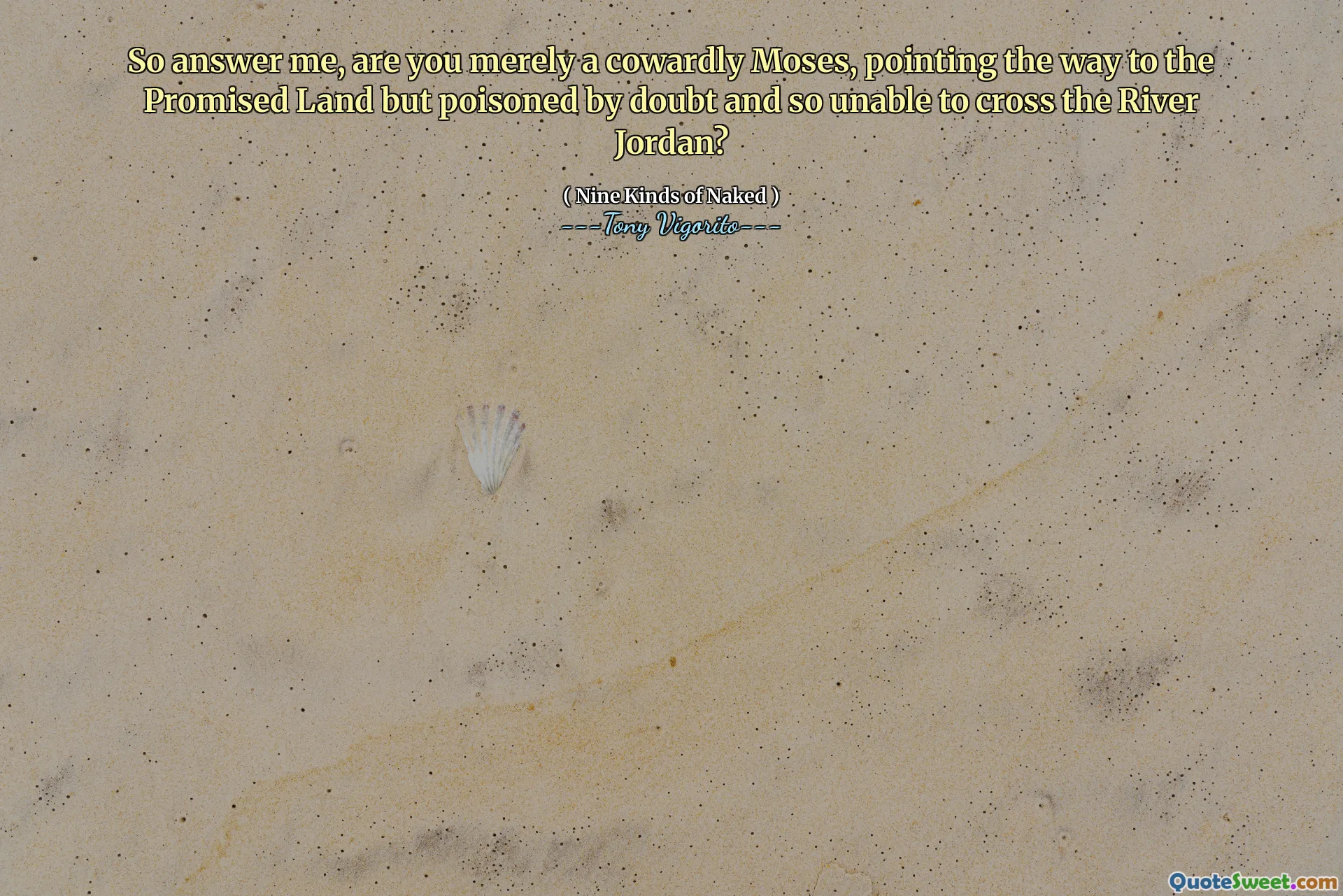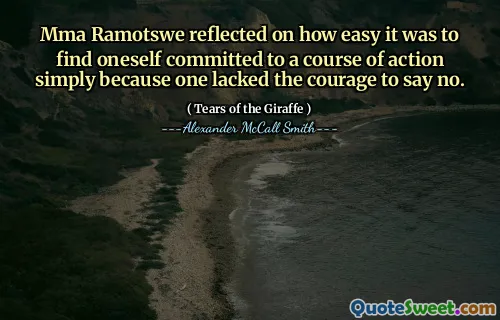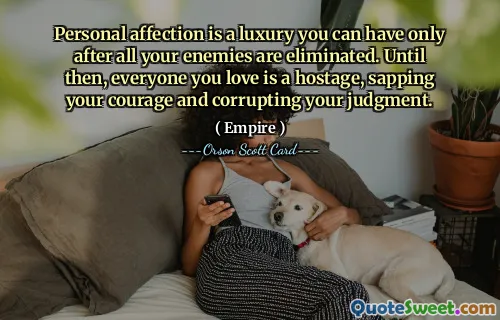
So answer me, are you merely a cowardly Moses, pointing the way to the Promised Land but poisoned by doubt and so unable to cross the River Jordan?
This quote compellingly evokes the biblical figure of Moses, who led the Israelites to the edge of the Promised Land but was denied entry himself. It draws a powerful metaphor highlighting the contrast between leadership and personal courage. The imagery of being a "cowardly Moses" suggests a person who can envision or direct others toward their goals or aspirations but is crippled by their own fears and insecurities, preventing them from fully embracing their destiny or experiencing the fruits of their guidance firsthand.
The "poisoned by doubt" phrase deepens this exploration of the human condition by addressing how self-doubt and internal struggle can act as barriers even for those who appear strong or authoritative. It challenges the reader to examine whether they are genuinely committed to their journeys or merely offering direction to others out of a fear of confronting their own challenges. There's an implicit call to courage here — to cross one's own 'River Jordan', face uncertainty and risk, and claim the reward of personal growth or fulfillment.
From a psychological and philosophical standpoint, this quote touches on existential themes of authenticity and action. It invites introspection about the distinction between knowing the right path and having the courage to walk it, emphasizing that leadership is not just about pointing the way but also about taking the steps forward despite fear. The resonance with the Moses story infuses the quote with historical and spiritual depth, positioning doubt not as a weakness but as a critical test one must overcome to reach transformation.
Overall, this quote strikes a universal chord about the struggle to turn knowledge and vision into tangible realities, urging a reckoning with one's doubts and a commitment to brave actions.


